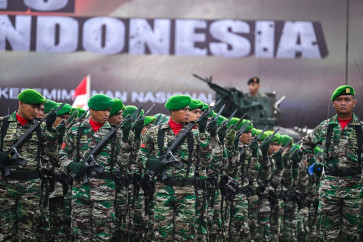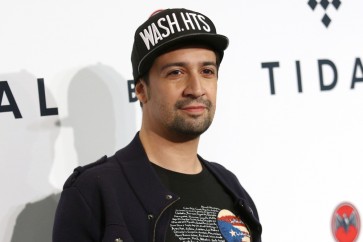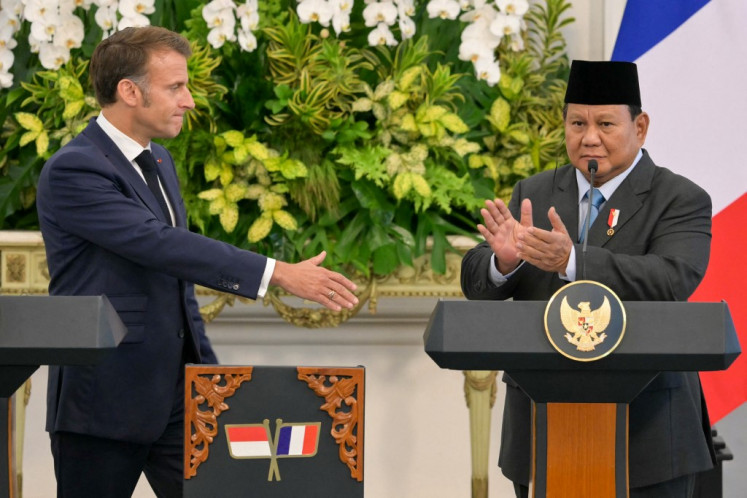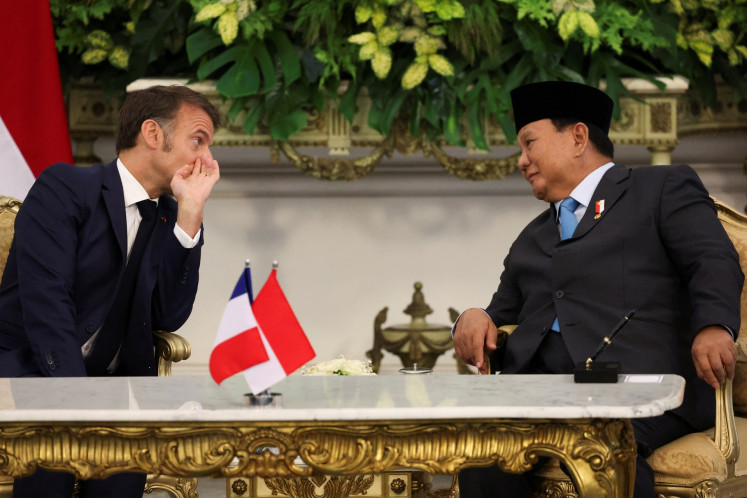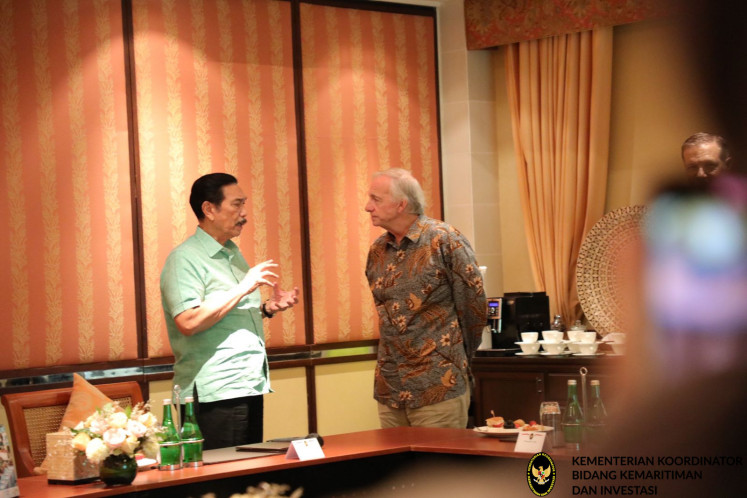When illegal fishing facilitates drug smuggling
The long coastline and presence of dozens of illegal ports scattered along the coastline have turned the Riau archipelago into an alternative access to Indonesia for many drug syndicates.
Change text size
Gift Premium Articles
to Anyone

T
he practice of illegal, unreported and unregulated (IUU) fishing is driven by greed, weak fisheries governance and poor monitoring and law enforcement. When compared with the profits and income obtained from IUU fishing, the risk of the illicit activities is considered small.
With such a pretext, drug smuggling through fishing vessels is inevitable. Drug-related crimes are now related, perhaps closely, to fisheries.
IUU fishing is a transnational organized crime analogous to the mafia organization in Italy. Even the United Nations Office on Drugs and Crime stated in 2011 that Italian mafia syndicates also controlled the global maritime and fisheries business.
Drug smuggling through the sea by a network of drug syndicates is organized crime, with both individuals and groups planning and carrying out illegal activities in more than one region or country. The roles played by drug syndicates also vary. The organized group of actors acts as financiers, drug owners, producers, controllers, big dealers, dealers, sellers/distributors and couriers.
The number of arrests of drug smugglers on Indonesian land borders is not small. They occurred, for example, on the Timor Leste border with Atambua, the Papua New Guinea border with Skouw in Jayapura, the Malaysian border with Aceh Tamiang and Lhokseumawe, and the Dumai and Bengkalis borders.
International drug syndicates also choose sea borders to smuggle drugs. This is evident in the capture of foreign ships carrying drugs in the waters of Riau Islands bordering Malaysia. The long coastline and presence of dozens of illegal ports scattered along the coastline have turned the Riau archipelago into an alternative access to Indonesia for many drug syndicates.
The Maritime Affairs and Fisheries Ministry and the Gorontalo office of the National Narcotics Agency (BNN) discovered in mid-August a fishing boat that was used by a drug trafficking syndicate. The finding should mark the start of a paradigm shift regarding IUU fishing, which has so far been limited to the problem of “fish theft” toward a “new trend of fisheries crimes” in Indonesia. During the arrest, two crew members tested positive for drugs.
Drug smuggling attempts also occurred in February 2018. The authorities confiscated 2 tons of drugs, including 1 ton of methamphetamine from China in the waters of Batam in Riau Islands. The increasing drug smuggling activities clearly show that Indonesia has become a market for international drug syndicates. Foreign ships carrying drugs mostly originated from China, Taiwan and Vietnam.
There are at least three main reasons why Indonesia has become a destination for drug syndicates. First, the syndicates understand well that Indonesia's demand for drugs is very large. No matter how many drugs they supply, they will be absorbed.
Second, Indonesia's territorial waters are very open considering that two-thirds of Indonesia's territory is ocean. Third, inconsistent enforcement of the law, in this case imposition of the maximum sentence, has enabled drug convicts to continue their business from behind bars.
From data obtained in an investigation by the Customs and Excise Directorate General in 2018, about 80 percent of drugs entered the country by sea. In particular, the drug smugglers took unofficial sea routes where law enforcement officers were absent. This is certainly an important note that illegal ports, known locally as “rat ports”, are the main access for drug smuggling and therefore need tight and persistent control.
The choice of sea routes by drug syndicates is inseparable from the minimal risk and limited, if not absent, border control. In their attempt to smuggle drugs via air, for example, drug lords usually try several modes, including false concealment (hiding drugs in goods), body wrapping (gluing drugs to the body) or insertion (drugs are inserted into body parts), which are risky. In addition, drug smuggling through the air will be easily detected through metal detectors and sniffer dogs found at every official international airport.
One way smugglers traffic drugs by sea is by inserting drugs into fish or putting them in hatches. This does not need the direct involvement of a dealer. Drug kingpins only need to spend money on fishing vessels that are willing to smuggle drugs. Their risk of being caught by the security forces is even less because if the fishing boat is captured, the main suspect will be the captain of the ship, while drug lords can still commit crimes.
To eradicate drugs by sea, of course strong cooperation among state apparatus is mandatory. As is known, there are several ministries and institutions that oversee Indonesian seas, such as the Navy, the Water Police, the Customs and Excise Directorate General, the Sea Transportation Directorate General, the Maritime Affairs and Fisheries Ministry and the Marine and Fishery Resources Surveillance Directorate General.
Only if all the forces are united, will the country be able to eradicate drug syndicates completely. Coordination among the state apparatus is more pressing than ever as drug syndicates do not come from one country. Their network is multinational in nature. The transaction assets of a drug syndicate worldwide can reach Rp 6.4 trillion (US$450 million)
Policymakers should also improve regulations related to eradication of drug smuggling by sea. Stronger regulations are urgently needed for drug smugglers by sea. The imposition of severe punishments is urgently needed so that Indonesia will no longer serve as a destination of international syndicates through sea routes.
IUU fishing is already a dangerous and highly organized form of transnational crime and should be cause for more concern due to links between crimes in the fisheries sector and other crimes related to fisheries, particularly drug smuggling.
Therefore, it is time for all elements of Indonesian society, the government, academics, law enforcement agencies and citizens, to open their ears and eyes to the danger of drugs. Whatever little information about alleged drug smuggling by sea will help the authorities fight the extraordinary crime.
***
The writer is fisheries inspector at the Maritime Affairs and Fisheries Ministry.


